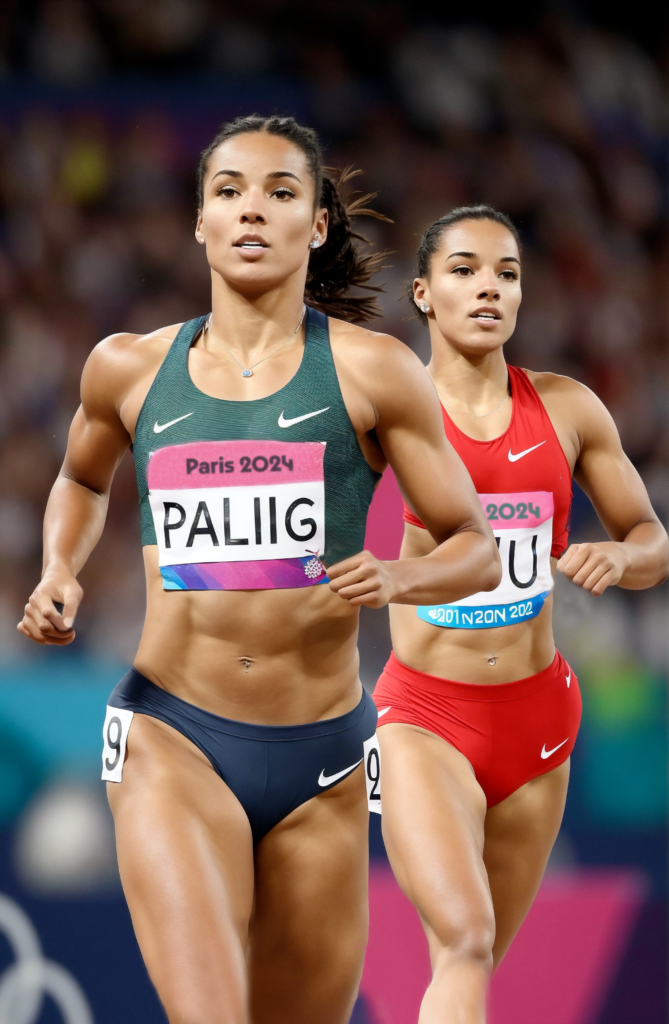Introduction To The Olympic Games
The Olympic Games are one of the most renowned and prestigious sporting events globally, attracting spectators from every corner of the world. This international multi-sport event not only showcases the pinnacle of human athleticism but also serves as a symbol of unity and peace. From its ancient origins in Greece to the spectacle of modern times, the Olympics have evolved as a platform where nations come together to compete and celebrate excellence in sports.
Brief History
The roots of the Olympic Games can be traced back to ancient Greece, where the first recorded games were held in Olympia in 776 BC. Initially a religious festival honoring the god Zeus, these games quickly became an important event in Greek culture, with athletes from various city-states competing in events such as running, wrestling, and chariot racing.
Importance Of The Olympics
The Olympics have grown beyond their athletic origins to become a symbol of global cooperation and peace. They embody the spirit of friendly competition and the pursuit of excellence, fostering goodwill among nations and promoting the values of honor, friendship, and excellence.
Origin Of The Olympic Games
Ancient Greece and the Birth of the Olympics
The ancient Olympic Games were deeply connected to Greek mythology and religion. Held every four years at Olympia, these games were an important part of the Panhellenic festivals and attracted participants from across the Greek world. These events were not only a test of physical prowess, but also a demonstration of respect, dedication, and reverence for the gods
Evolution Over The Centuries
As time went on, the Olympic Games grew in scope and prestige, additional events were added, and participation extended beyond Greece. However, with the rise of the Roman Empire and the spread of Christianity, the ancient games fell into abeyance and were abolished in 393 AD by Emperor Theodosius I, who viewed them as a pagan ritual.

Modern Olympic Games
Revival In The 19th Century
The idea of reviving the Olympic Games was put forward by French educator Baron Pierre de Coubertin in the late 19th century. Inspired by the ancient games and motivated by a desire to promote peace and physical education, Coubertin founded the International Olympic Committee (IOC) in 1894, resulting in the first modern Olympic Games being held in Athens in 1896.
Role Of The International Olympic Committee (Ioc)
The IOC plays a central role in organizing and operating the Olympic Games. It is responsible for selecting host cities, overseeing the sports included in the Games, and ensuring that Olympic values are upheld. Over the years, the IOC has also worked to adapt the Games to a changing global landscape, introduce new sports, and promote gender equality.
Summer Vs. Winter Olympics
Differences in Games and Events
The Olympic Games are divided into two main categories: the Summer Olympics and the Winter Olympics. The Summer Olympics feature a wide range of sports, including athletics, swimming, and gymnastics, while the Winter Olympics focus on sports that require snow and ice, such as skiing, snowboarding, and ice hockey. Each edition of the Olympics offers a unique set of challenges and opportunities for athletes to showcase different skills and disciplines.
Hosting Countries And Locations
Hosting the Olympics is a prestigious honor for any country, but it also comes with significant responsibilities and challenges. The Summer and Winter Olympics are held in different locations, often requiring host countries to invest heavily in infrastructure and facilities. Selecting host cities is a rigorous process, involving considerations ranging from the availability of venues to the potential economic impact.
Iconic Moments In Olympic History
Record-breaking achievements
The Olympic Games have been the stage for countless record-breaking performances, where athletes have pushed the boundaries of what is possible. From Usain Bolt’s lightning-speed sprints to Michael Phelps’ dominance in the pool, these moments have left an indelible mark on the history of the Games.
Memorable Performances
Beyond the records, the Olympics have also been a showcase of incredible performances that resonate with fans around the world. Whether it was Jesse Owens’ defiance of Nazi ideology in 1936 or Nadia Comaneci’s performance of a perfect 10 in gymnastics, these moments have become part of Olympic history and continue to inspire generations of athletes.
The Olympic Flame And Symbolism
The Journey Of The Olympic Torch
One of the most enduring symbols of the Olympic Games is the Olympic torch, which is lit in Olympia and carried by relay to the host city. This journey, known as the Olympic Torch Relay, symbolizes the connection between the ancient and modern Games and the unity of nations. The torch remains lit throughout the duration of the Games, representing the enduring spirit of competition and camaraderie.
The Rings And Their Meaning
The Olympic rings are another iconic symbol, consisting of five interlocking rings of blue, yellow, black, green and red on a white background. The rings represent the union of athletes from the five continents and all the nations of the world. The design, created by Pierre de Coubertin, reflects the universal nature of the Olympics and the coming together of diverse cultures and peoples.
The Olympic Motto And Values
Explanation Of “Citius, Altius, Fortius”
“Citius, Altius, Fortius” Explained
The Olympic motto, “Citius, Altius, Fortius,” translates to “Faster, Higher, Stronger.” This phrase reflects the essence of the Olympic spirit, which encourages athletes to strive for excellence and push the boundaries of human potential. It serves as a reminder that the Olympics are not just about winning, but about the relentless pursuit of improvement.
The Sense Of Fair Play And Sportsmanship
The values of fair play and sportsmanship are at the core of the Olympic Games. Athletes are expected to compete with integrity, respect for their opponents, and a commitment to fair competition. These values are emphasized by the IOC and are an integral part of the culture of the Olympics

Olympic Sports Categories
Athletics And Track Events
Athletics is one of the most prominent categories at the Summer Olympics, comprising sprints, long-distance running, and field events such as the long jump and javelin throw. These events are a true test of speed, endurance, and precision, with athletes training for years to compete at the highest level.
Swimming And Water Sports
Swimming is another major category, featuring events ranging from short sprints to long-distance races, as well as diving and synchronized swimming. The huge variety of swimming events reflects the versatility and skill of the athletes, making it one of the most watched sports at the Olympics.
Notable Olympians
Athletes Who Made It In Olympic History
The Olympic Games have produced countless great athletes who have left an indelible mark on the history of the Games. Figures like Carl Lewis, Serena Williams, and Simone Biles have not only achieved extraordinary success but also inspired millions with their dedication, perseverance, and sportsmanship.
Inspiring Perseverance Stories
The Olympics are filled with stories of athletes who have overcome incredible odds to compete on the world stage. From overcoming injuries to breaking barriers of race and gender, these athletes reflect the true spirit of the Olympics, proving that greatness can be achieved with determination and hard work.
Challenges Faced By The Olympic Games
Political Interference And Boycotts
The Olympic Games have not been immune to political interference, with boycotts and protests occurring several times over the years. These actions, prompted by geopolitical tensions, have highlighted the challenges of maintaining the apolitical nature of the Olympics and the difficulties of uniting nations through sports.
Financial And Logistical Issues
Hosting the Olympics is a huge undertaking, requiring significant financial investment and logistical planning. From building venues to ensuring security, the challenges of staging the Games are enormous, and not all host cities have reaped the benefits expected. The financial burden has led some cities to reconsider bidding for future Games, raising questions about the sustainability of the current Olympic model.
The Economic Impact Of Hosting The Olympics
Costs And Investments
The economic impact of hosting the Olympics is a subject of much debate. While the Games can bring in significant revenue through tourism, sponsorship and broadcast rights, the costs associated with building and organizing the infrastructure can be staggering. Some host cities have struggled with debt and underutilized facilities long after the Games are over.
Long-Term Benefits And DrawbacksTechnological Advancements In The Olympics
Despite the challenges, hosting the Olympics can also bring long-term benefits, such as improved infrastructure, increased global visibility and increased national pride. However, the economic impact varies greatly from one host city to another, and the success of the Games often depends on careful planning and management.
Technological advancements at the Olympics
The Role Of Technology In Enhancing Performance
Technology has played a key role in the evolution of the Olympic Games, from the introduction of advanced training equipment to the use of data analytics in performance optimization. These innovations have allowed athletes to push the limits of human potential and have made the competition more exciting and competitive.
Innovations In Broadcasting And Spectator Experience
The way we experience the Olympics has also been transformed by technology, with innovations in broadcasting bringing the Games to a more global audience than ever before. From high-definition coverage to virtual reality experiences, technology has made the Olympics more accessible and engaging for fans around the world.
Sustainability And The Olympics
Eco-Friendly Initiatives
In recent years, the IOC has placed a greater emphasis on sustainability, encouraging host cities to adopt environmentally friendly practices. From building energy-efficient venues to reducing waste, these initiatives aim to reduce the environmental impact of the Games and set a positive example for the world.
The Future Of A Green Olympics
While the world grapples with climate change, the Olympics have the potential to play a leading role in promoting sustainability. Future host cities will have to prioritize green initiatives and find innovative ways to host the Games without compromising the environment. The concept of a “Green Olympics” is becoming increasingly important in the coming years.
The Cultural Impact Of The Olympic Games
How The Olympics Promote Global Unity
The Olympics are more than just a sporting event; they are a celebration of global unity and cultural diversity. By bringing together athletes from around the world, the Games foster a sense of shared humanity and promote understanding and cooperation between countries. This cultural exchange is one of the most powerful aspects of the Olympics.
Cultural Exchange And Celebrations
The Olympics also provide a platform for cultural exchange, with host cities showcasing their traditions and heritage to the world. From the opening and closing ceremonies to the various cultural events held during the Games, the Olympics provide a unique opportunity to celebrate the diversity of human culture.

The Future Of The Olympic Games
Emerging Sports And Trends
As the world of sports continues to evolve, so does the Olympic program. New sports and disciplines are being introduced into the Games, reflecting changing trends and interests. From skateboarding to surfing, the Olympics are embracing the future of sports and attracting new generations of fans.
Challenges And Opportunities For Future Host Cities
The future of the Olympics will also be shaped by the challenges and opportunities faced by future host cities. Issues such as sustainability, economic viability and political stability will play a key role in determining the success of future Games. As the Olympics continue to evolve, it will be important for the IOC and host cities to adapt to these changing dynamics.
Conclusion
The Olympic Games are not just a competition; they are a celebration of human achievement, unity and the pursuit of excellence. From its ancient origins to the modern-day spectacle, the Olympics have evolved into a global event that transcends borders and brings people together. As we look to the future, the enduring spirit of the Olympics will continue to inspire and unite us, and remind us of the power of sport to change the world.
Frequently Asked Questions
1. When did the first modern Olympic Games take place?
The first modern Olympic Games were held in Athens, Greece in 1896, symbolizing the revival of the ancient games.
2. What is the significance of the Olympic rings?
The Olympic rings represent the five continents of the world and symbolize the unity of athletes from all countries.
3. How are cities selected to host the Olympics?
Cities interested in hosting the Olympics submit bids to the IOC, which evaluates them based on factors such as infrastructure, security, and financial capacity.
4. What is the most watched Olympic sport?
Athletics, especially track and field events, are among the most watched sports at the Olympics, attracting a large number of global viewers.
5. How are athletes selected to compete in the Olympics?
Athletes are selected to compete at the Olympics based on their performance in qualifying events, national trials, and by meeting standards set by the IOC and their respective sports federations.
